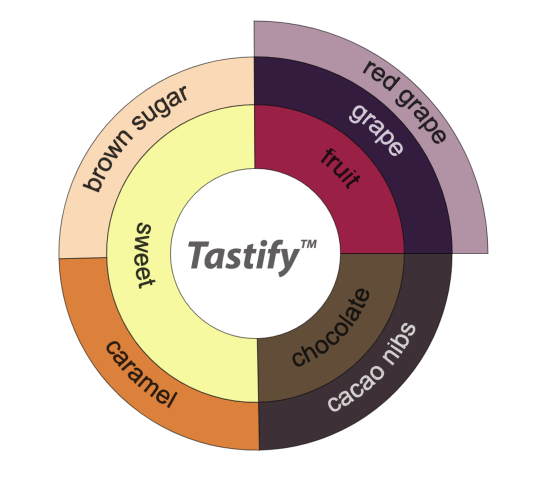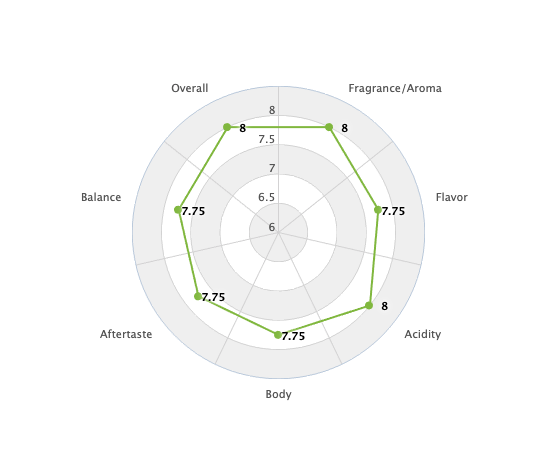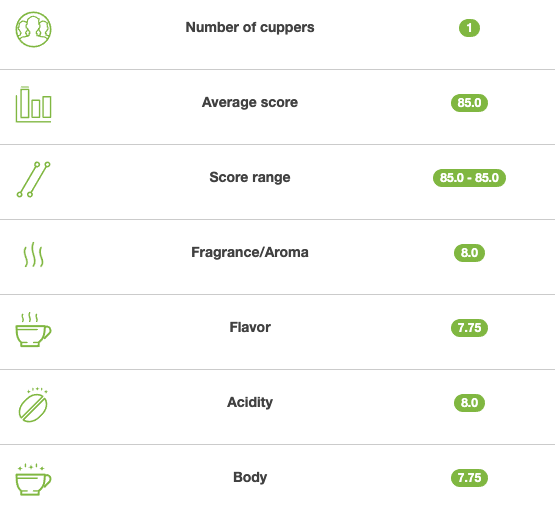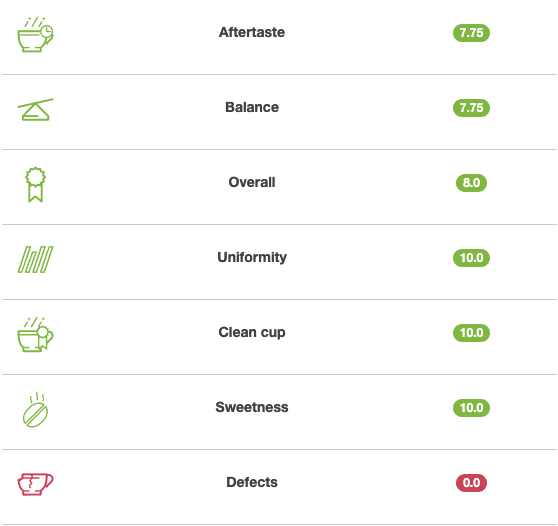In Kenya, even cow shit is a subject of negotiation!
Dries Grasveld
Hello Moyeesta’s!
My name is Dries Grasveld and I am working as a project intern for Moyees Low Carbon Coffee project in Kenya. I am in between my pre-master & master program of the study Environment & Resource Management at the Vrije Universiteit Amsterdam.
In December, I started looking for an internship to gain more working experience within land restoration & regenerative agriculture. Fortunately, I ran into this interesting coffee project, that perfectly matches my background! What really appealed to me is that there’s so much potential to improve the coffee industry. Now’s the time for companies to stand up and hopefully, with Moyee as initiator, that will be set in motion!
One of the requirements for Moyee was to fly to Kenya as soon as possible. Because of the current Covid situation, I didn’t have to overthink that twice.. Less than 2 weeks later I was on my way to Kenya! The reason FairChain & Moyee decided to send me here is to have someone constantly in the field, who can manage the actual implementation of the bio-composting business case, which was developed by Daniël Govers last year. But what does this adventure mean for me? One thing is sure, I fell in love with Kenya!
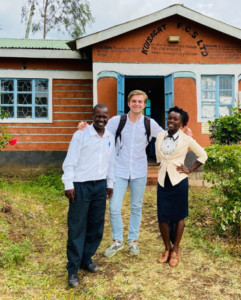
One of the missions: ‘Implementing a low carbon coffee value-chain, by upgrading and lowering the carbon footprint of coffee farmers’
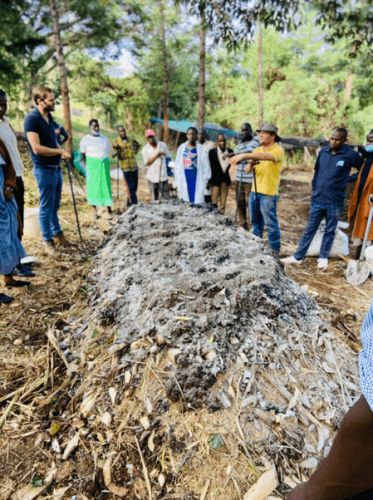
The revolution is about to begin
First of all, to answer the question of what we are doing here? The main goal is to start a low carbon coffee revolution, by moving Kenyan farmers from synthetic to organic farming. Ultimately, this should open up a low carbon coffee market for Moyee with a fair value-chain and higher income for farmers within Kenya. In this project, organic farming means banning all the use of chemical fertilizers & pesticides and replace these with bio-compost & liquid bio-fertilizers. The decreasing yields and extent to which Kenyan farmers make use of synthetics emphasizes the great challenge we are facing… Organic farming can be groundbreaking for the farmers because it will enhance soil fertility, improve the health of coffee plants and restore biodiversity. Intercropping will also be part of our strategy and all of this will lead to an increase of the income of the farmers and more food security for their families.
To make all of this possible we are working in this SDGP (Sustainable Development Goal Partnership) project, with several partners. The FairChain Foundation is digitalizing the coffee value-chain, Agri Terra will train the farmers and the coffee authority of Kenya (Kalro) is supporting us with knowledge and will bring our methodology and results to other parts of Kenya. The local coffee union KDCU in Kipkelion county in the Kerich region. is our partner on the ground. There are thousands of farmers connected to this Union, which could all potentially become organic. In the first year, we are almost reaching 2400 farmers, followed by many more in the coming years. Kericho is the region where I am also spending most of my time. From day one, my Kenyan colleague Henry and I have been very busy with preparing the bio-compost & bio-fertilizer pilot production & training, which took place at the end of January. It’s such a special experience to visit all the local farmers, suppliers and factories and to meet so many inspiring people. Together with a bio-consultant, we managed to set up a successful bio-solutions training, in which 20 employees received an official bio certificate! More good news? We have produced our first pilot batch of bio-compost & bio-fertilizers, which is almost ready for use!
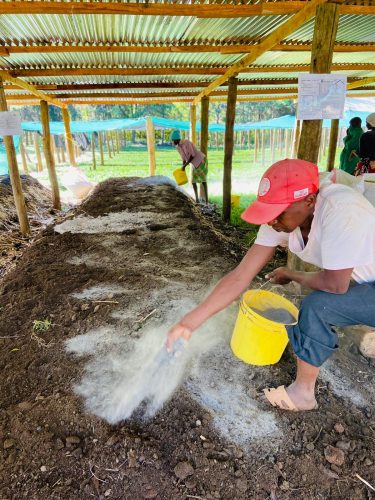
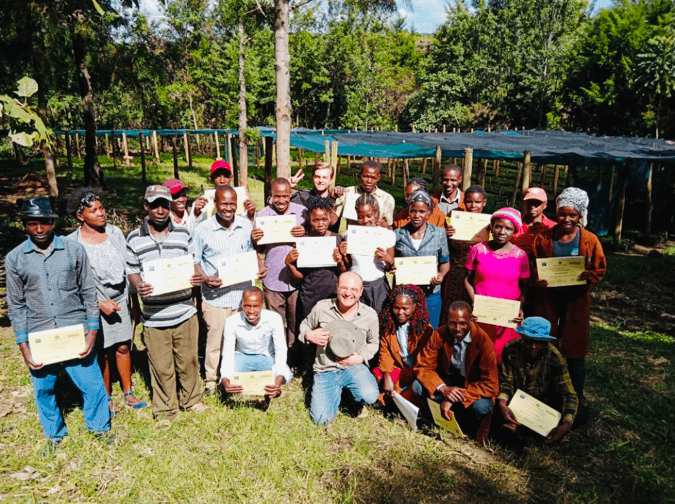
Circularity is one of the pillars of our project
To give more insights on what we are actually producing. For the production of the bio-compost & bio-fertilizers, we use many local organic material sources from farmers in the region. Most of those materials can be considered waste product, which local farmers are more than happy to get rid of.
To give some short examples; For decades, sugar cane farmers are burning their leftover plants because they can’t sell them. This leads to high carbon emissions. However, by using those leftovers for our compost, we can reduce those emissions significantly. Secondly, the large plague of water hyacinths around Lake Victoria (which has emerged due to climate change) are blocking the water channels of rice farmers to their fields and ruining their harvest. Water hyacinths are a perfect source of nitrogen that can be used for compost.
The benefit of extracting this? It will reduce the plague and clean the water channels, which means a better rice harvest! With those strategies, we do not only lower the carbon footprint within coffee but also improve it within other agricultural practices in the region. Both nature and farmers will be happy, and that shows that circularity is one of the pillars of our project!
What is next?
Currently, we are busy establishing the production facility of the bio-compost & fertilizers, so that large scale production and implementation can be set in motion. The great challenge here for me is to organize an innovative and self-sustained business for KDCU, which meets the needs and demands of the farmers. The official kick-off of many more beautiful things (and coffee) to come…
Organic revolution to be continued!
